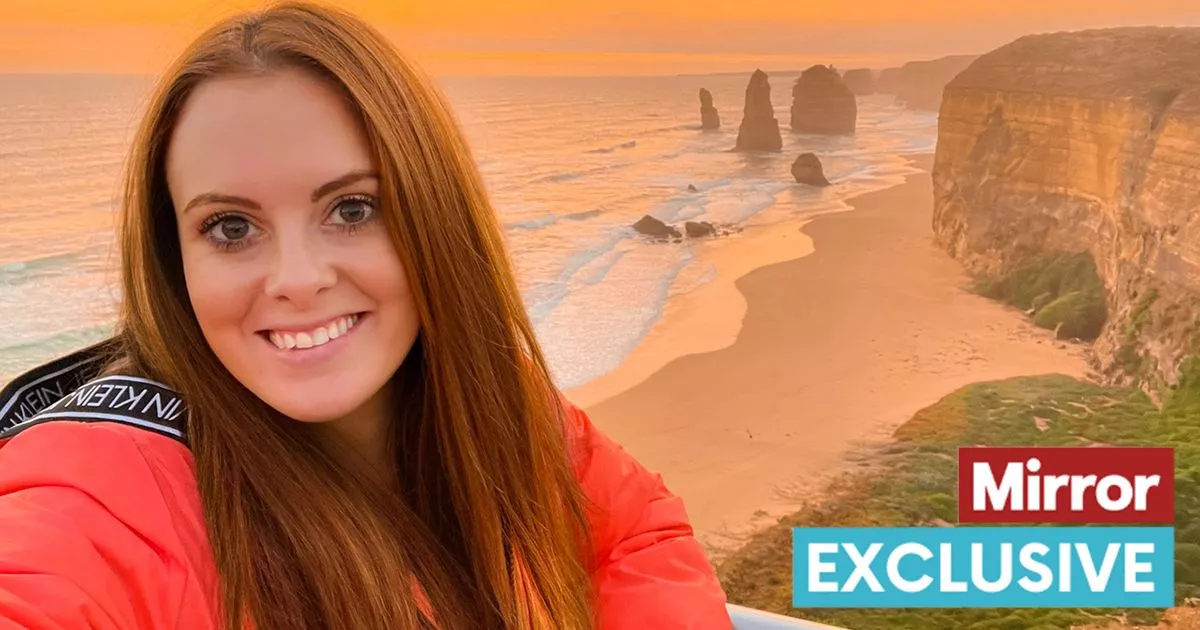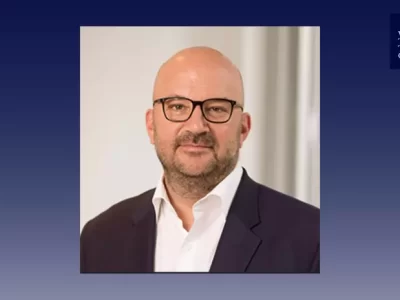A globetrotter paid to visit incredible locations across the world began to suffer from a debilitating condition which stopped the moment she called quits on her seemingly perfect life.
For much of her life Lauren Juliff has had the kind of career most people can only dream of. For 12 years she has whizzed across the world, meeting remarkable people and soaking in the sights in more than 100 countries, earning her crust as a travel influencer. She was ideal for the job, having spent her childhood counting down the time to her next family holiday on a giant wall calendar and starting moonily at maps.
She started plotting a big trip as she studied towards a masters degree in physics at Royal Holloway university and set off for a year long trek after graduating, having spent months saving by selling her spare belongings and working at a supermarket.
“Initially, I planned for my website to keep friends and family updated on the places I was seeing. It was quite unexpected, then, when I found myself amassing a small audience – mostly by posting links to my articles on social media. By the time I left the UK – in July 2011 – I had several thousand regular readers,” Lauren explained.
“As I began to explore Eastern Europe – my first destination was Croatia – I started receiving emails from advertisers who were looking to pay to promote their services to my readers. By the time I was six months into my trip, I was consistently making £1,500 (a month), which was enough money to sustain myself in cheaper regions of the world. It was at this point that I realised if this kept going, I might never have to return home.
“My dream had always been to see as much of the world as possible, so once I’d seemingly made that a reality, I was determined to never let it go.”
For the next five years Lauren travelled continuously, visiting 75 countries across five continents. “I hiked across glaciers in New Zealand and camped in the deserts of Morocco. I watched the sunrise over Chichen Itza and the sunset over Angkor Wat. I walked along the Great Wall of China and sailed a yacht around the coast of Turkey. I learned to surf in Bali and snorkelled over the Great Barrier Reef,” she said.
Lauren went on to meet her partner, another full time traveller, while in Thailand and continued to explore the world with him. At the five year mark however, something changed.
“I began having panic attacks. I’d suffered from anxiety as a teenager but had rarely encountered it since becoming a digital nomad. Out of the blue, I began to experience panic attacks every day, spontaneously feeling like I was dying and having to rush back to my hotel,” Lauren explained.
“I tried to fix them in various ways, like eating better, exercising, journaling, and meditating, but nothing worked. One day, I was having a panic attack in a busy restaurant and trying to calm myself down. I wondered aloud to my partner if I would still be having panic attacks if I’d stopped travelling and found a home. I talked about what a having a home would involve: consistency, routines, familiarity. My panic attack ended instantly.”
Lauren said it was a “revelation” when she stopped travelling. While she wanted to keep going, she felt like her body was telling her not to. “This pattern repeated itself over and over. I’d be hit by a wave of anxiety, turn my thoughts towards the idea of having a home, then feel the panic start to fade away,” she explained.
“There’s a baseline level of cognitive load that comes from spending time in a new country. You’re surrounded by a culture you don’t understand, trying to operate in a language you can’t communicate in, and unaware of how to get around and avoid scams. It rarely feels as easy and simple as it does in your home life.”
After years of living off the thrill of culture shocks and immersing herself in new places, Lauren found travelling had grown taxing. “I was mentally and physically exhausted,” she said.
“There were three main problems for me: the loneliness, the unhealthy lifestyle, and the lack of a work-life balance. In terms of the loneliness, this was something that crept up on me.
“When you travel, you’re often surrounded by new people, whether it’s other digital nomads in co-working spaces or locals you’re meeting through community events. My favourite aspect of the lifestyle was how many people I was meeting; I would have said I was the opposite of lonely. I was making friends on a daily basis and connecting with people I would have never encountered had I’d stayed at home in the U.K.
“Due to the continual movement, however, you – and your friends – won’t usually spend more than a month in a single destination. And what that means is that your life is all about meeting people then saying goodbye to them a few days later. I craved having a set of friends who I had known for more than two weeks; people who I got to see regularly, and who really knew me. Who I could have deep conversations with and reminisce about our past shared history. I was only able to obtain this by finding a home base and building friendships with people who were planning on sticking around.”
Lauren also found the lifestyle was increasingly unhealthy, due to the allure of trying out new cuisines and working in fun places.
“While it is possible to focus on your health as a digital nomad, it’s a lot harder. You could stay in apartments with well-stocked kitchens, only rent places that have access to a desk and supportive chair, be happy to cook instead of sampling local restaurants, be able to locate gyms that are happy to offer short-term memberships, travel with a yoga mat, and avoid junk food and alcohol,” she continued.
“Even if you have the best of intentions, though, it’s tough to maintain access to all of these on an ongoing basis. That’s especially the case if you’re moving to a new city every few days. I joyfully ate out in restaurants for three meals a day for years, sampling as much of the local cuisines as I could.
“Initially, it was amazing, but after five years of it, I was sick and unhealthy. I had gained weight from having little control over my diet and often felt tired and unmotivated. I caught food poisoning a dozen times over my five years of travel, which left me with ongoing stomach issues.”
She also struggled to find places to stay with good desks and ergonomic chairs, so Lauren ended up working in bed. The explorer also found it hard to sign-up to gyms which would let her join for the duration of her short stays in cities.
Another issue was the work/life balance. “Running a website is a full-time job, and I would work 50 or 60 hours a week on mine. At the same time, I was in a brand new country and wanted to see as much of it as I could. And on top of that, I needed to also give myself downtime in which to relax and meet new people and pursue creative hobbies,” Lauren explained.
“Quite frankly, I didn’t have time to do it all, so I spent most of my time working inefficiently, neglecting my health, and barely seeing the places I was in. People underestimate the toll that continual movement and stimulation takes on your body.
“They may not necessarily think about the health consequences of eating street food or restaurant meals for years on end. They may not realise that with a constantly-changing community, you rarely get to build deep, lifelong friendships or even how hard it is to work when you’re also trying to explore the places you’re travelling through and trying to figure out where you’ll move to next.
“Maybe you end up in a noisy hotel room where you can’t focus, or the internet isn’t reliable, or there isn’t a comfortable chair to work from. Maybe you get food poisoning from the street food. All of these things can affect your ability to perform your work to the best of your abilities.”
After years of living this life, Lauren realised the answer was to stop. She moved to Lisbon, Portugal and signed a year long lease on an apartment. She still travelled up to six months a year, but now Lauren had a base.
“I made friends, I learned to cook, I picked up hobbies, tripled my website’s income, and overcame my anxiety,” she explained. “These days, I now live in Melbourne, Australia, with my partner for nine months of the year and travel for three. My life feels far more balanced now: I’m able to better run my website, have healthy routines, and still get to explore the world that I love so much.”









